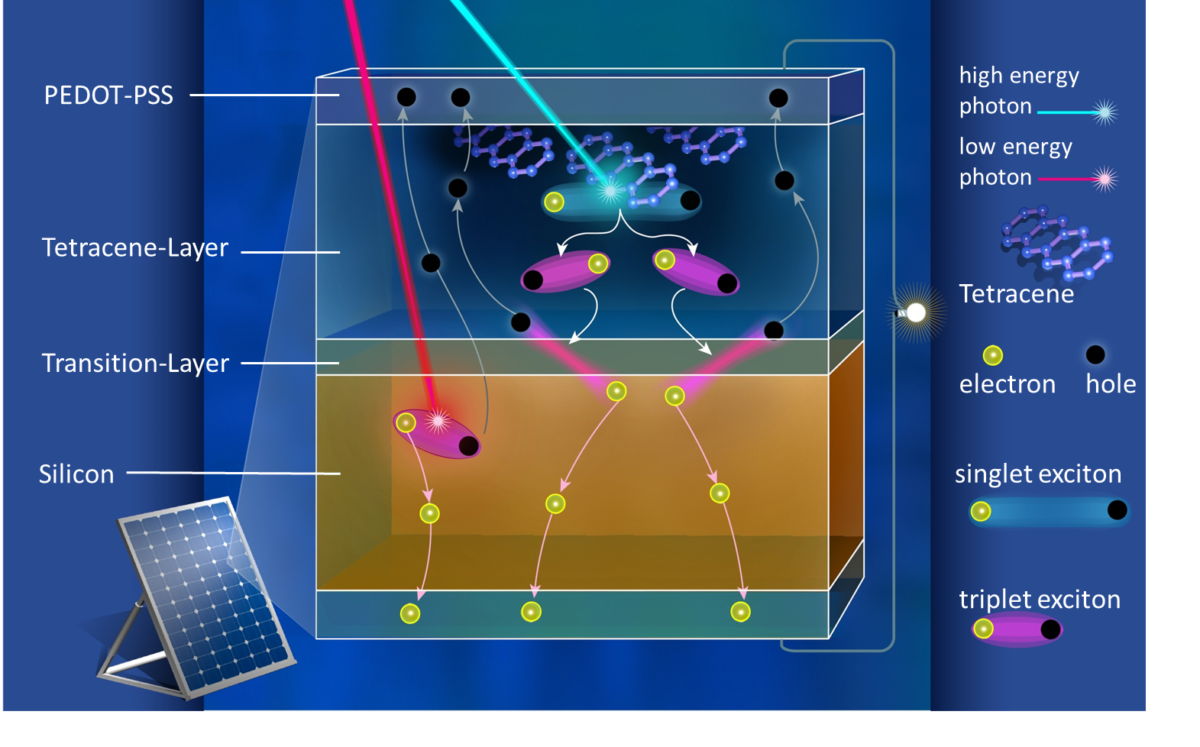Working with an effect known as singlet exciton fission (SF), scientists from Germany’s Helmholtz Zentrum Berlin have demonstrated a cell concept, which they say could ultimately achieve efficiencies of around 40%.
The SF effect has been observed in certain materials, and essentially allows one light particle (photon) to generate two electron hole pairs as it is absorbed, instead of just one, potentially doubling the efficiency of a solar cell.
In the study, ‘Crystalline silicon solar cells with tetracene interlayers: the path to silicon-singlet fission heterojunction devices’, published in the journal Materials Horizons, the researchers describe integrating a 100-nanometer thick layer of tetracene crystal – a material known to exhibit the SF effect – into the surface of an n-type silicon solar cell.
An additional layer of organic polymer PEDOT:PSS was added to improve interactions at the layer interfaces. “The challenge was to separate the triplet pairs at the silicon interface without significantly disrupting the current flow of the silicon solar cell,” explains HZB Professor, Klaus Lips.
With further investigations using spectroscopic techniques and X-ray light, the researchers were able to fabricate working tetracene-silicon solar cells, and show through simulations that between 5% and 10% of triplet pairs generated in the tetracene layer were converted into output from the cell.
The paper describes the result as a “promising first result for the direct heterojunction approach to singlet fission on crystalline silicon”, and HZB Klaus Lips says his team is already considering follow up experiments.
“With this solar cell structure, we have shown that the approach works in principle, and delivered a workhorse design,” he explains. “And we already know what we have to do to increase the yield of separated triplet excitons to up to 200 percent,” he says.
This content is protected by copyright and may not be reused. If you want to cooperate with us and would like to reuse some of our content, please contact: editors@pv-magazine.com.




With Tetracene organic layer, using PEDOT-PSS polymer combination this scientific work is new indeed. I appreciate highly for this research.
As the author mentioned in his paper, separation of a singlet from a triplet is a long term challenge for Organic Solar Cell Developers.
I look forward to know more about this solar cell development steps and would be glad to receive a copy of the paper.
Thank you for sharing the news for this advancements.